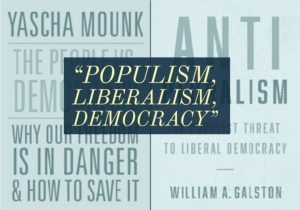The collapse of state socialism brought about social liberalization, political democratization and economic privatization, but these transformations never ran smoothly or in the same direction in all post-communist states. By the mid-2000s, countries clustered in Central Europe and the Baltic States seemed to have consolidated liberal democracy. Then something snapped, notes the FATIGUE project, funded by the EU’s Marie Skłodowska-Curie Actions program.
The political trajectory veered off in new directions as populist forces sought to delegitimize the liberal democratic system in the name of unconstrained majoritarianism, notably in Hungary and Poland.

National Endowment for Democracy
Central and Eastern Europe’s populist politics emerged from ‘delayed transformational fatigue’ due to disappointment with the results of economic reforms and particularly with the new post-communist elites, according to Richard Mole, Professor of Political Sociology at the UCL School of Slavonic and East European Studies.
“The neoliberal economic reforms in the 1990s increased inequality, while the rapid social and cultural changes brought about caused a sense of dislocation. People felt being shorn from their cultures and individual identities by globalization,” he explains. “Such economic, social and cultural changes often make members of previously advantaged groups feel like they are losing their status. Overall, populists promise to restore the sense of entitlement of formerly privileged individuals by ‘making the country great again’.”
On Wednesday, December 7 from 04:00 PM to 05:15 PM EET a Carnegie Endowment panel will tackle the question of the rise of authoritarianism as well as the politics of austerity as they relate to political instability. Join a public panel discussion with National Endowment for Democracy (NED) board member Rachel Kleinfeld, Hamza Meddeb, Moisés Naím, Oliver Stuenkel chaired by Frances Z. Brown. The discussion will be held in English live on YouTube and Facebook. Contact Lina Dernaika at lina.dernaika@carnegie-mec.org.







